Mattress Care
June 2020Hypoallergenic Mattresses & Beds Explained for Sleepers with Allergies
Coughing, itching, sneezing and watery eyes are no fun. If you suffer from allergies then your bedroom can be a potential nightmare of allergens. This guide is going to give you some top tips to help reduce the allergies in the bedroom and make wiser choices when it comes to choosing a new mattress and bedding. We speak to people all the time who have bought a new mattress to then find their allergic reactions have gone through the roof. Hopefully sharing this will help you avoid similar mistakes.

- Are you allergic to your mattress?
- What causes allergies in the bedroom?
- What is a hypoallergenic mattress?
- The best hypoallergenic mattress models
- How to keep your bedroom allergy free
Are you allergic to your mattress?
Allergies are caused when the body reacts to a substance it finds a threat to your immune system. It is unclear why it happens but its believed that 1 in 4 people suffer from some form of allergies. Some claim that as peoples lives are becoming cleaner they are less exposed to relatively harmless stimulants that the body would be used to ie dust. If you suffer from allergies then these can set off your immune system reacting against them such as watery eyes, itching or sneezing to try and get rid of the foreign particle. Your body releases histamine which leads to the common uncomfortable symptoms.
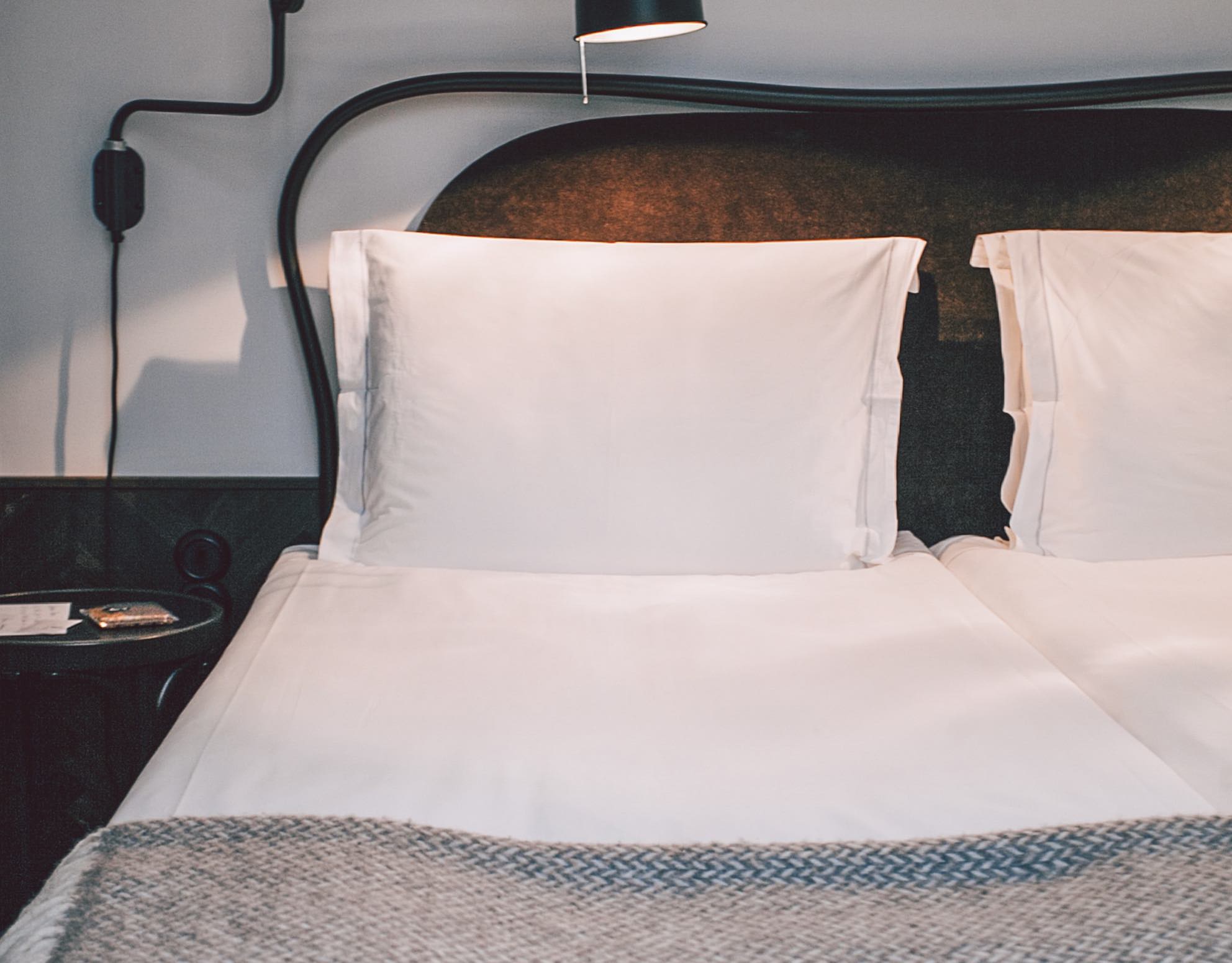
Some people can actually be allergic to the contents of their mattress. Especially if it contains materials, fibres or chemicals that they are sensitive to. If you are suffering itching in bed its always worthwhile getting an allergy test to see if any of the upholstery or components are part of your allergy profile.
What causes allergies in the bedroom?
The following is a non-exhaustive list of potential bedroom allergens.
- Dust mites
- Grass and tree pollen – commonly known as hay fever (allergic rhinitis)
- Animal dander ie tiny flakes of skin or animal hair
- Natural Latex – not to be confused with synthetic latex
- Mould – these can release small particles into the air that you can breathe in the bedroom
- Household chemicals – including those in detergents used in the bedroom
What is a hypoallergenic mattress?
Hypoallergenic mattresses are made from materials that are resistant to potential allergens. Some materials are more resistant to causing allergic reactions than others. For example, Wool (lanolin allergin to the alcohol in the fibres)and Horsehair can contain a serum called albumin that causes allergic reactions or rashes. The same with a Latex mattress that can cause people to have adverse reactions. If you suffer from allergies then its key that you choose a mattress which has the least potential to disrupt your sleep by causing a reaction.
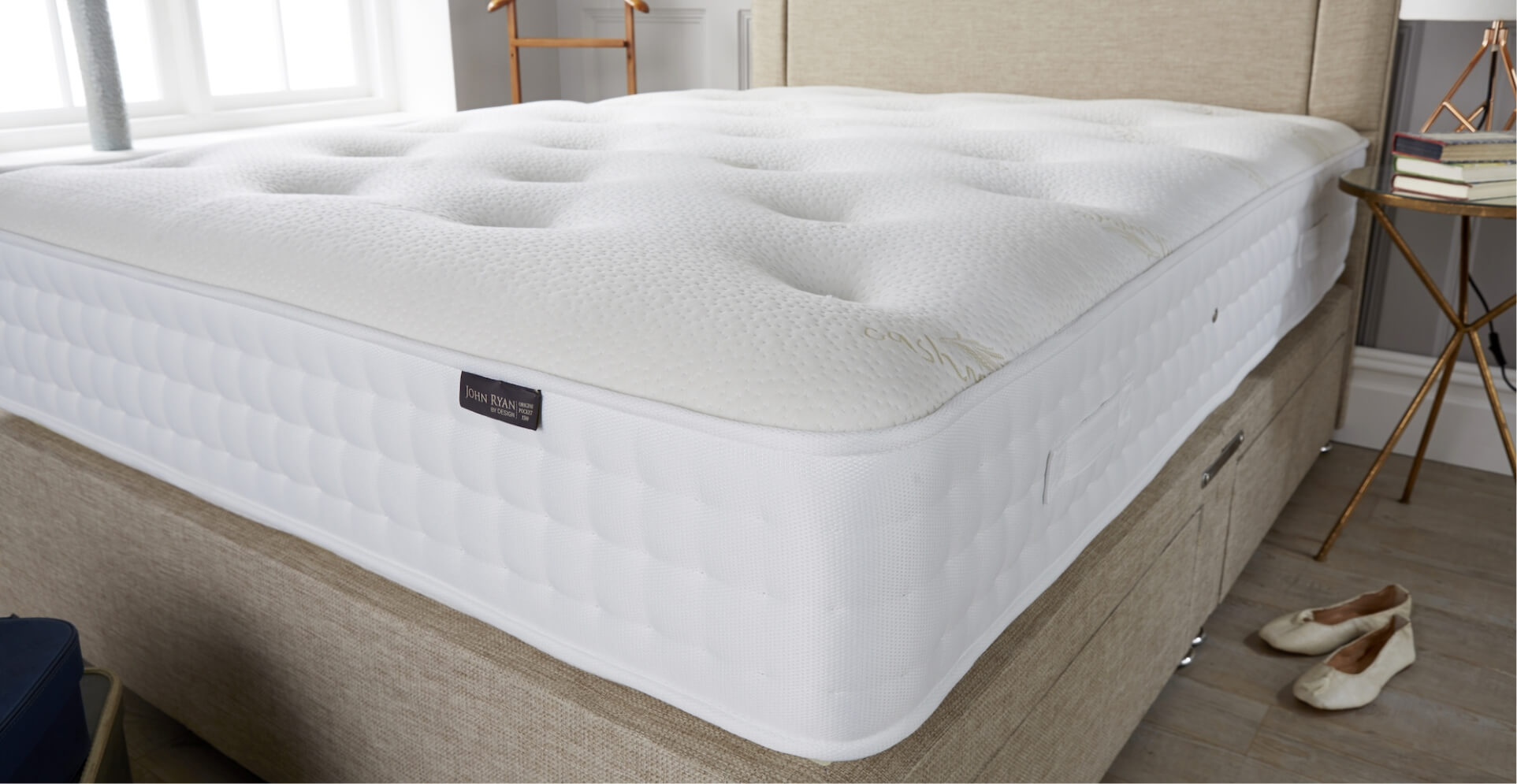
Synthetic polyester is anti-microbial making it an excellent choice if you struggle with allergies in the bedroom. Cotton is also surprisingly hypoallergenic. As you spend around 7-10 hours per night in bed you really need to make sure that the contents of your new mattress are not causing your allergies to flare up. As the comfort layers of a mattress are usually the softer fibres that sit close to the skin it’s important to know which fibres will help reduce any reactions.
Examples of Hypoallergenic Materials
Most synthetic man-made fibres are hypoallergenic by default. One of the reasons for this is that they don’t contain animal proteins or components that can cause reactions. You should however always consult a doctor to work out the exact triggers for your allergies and seek medical advice if uncertain.
- Polyester
- White fibre (synthetic)
- Memory foam (though care needs to be taken due to its heat retentive properties causing night sweats)
- Cotton (depending on the processing used)

Hypoallergenic Mattresses
If you suffer from allergies then the first step is to seek medical advice on the exact causes of your reactions. There are however mattress construction types and materials that offer hypoallergenic materials that can help reduce potential allergic reactions. Below we offer two mattress models that use synthetic hypoallergenic materials to reduce the risk of reactions. We detail exactly what’s inside our mattresses, unlike many other more secretive retailers. So these two models upholstery and details can be used as a good basis for comparison when looking for a new hypoallergenic mattress.
Origins Comfort Hypoallergenic Mattress
Our Origins Comfort is our starter model which features hypoallergenic fillings in the form of polyester and foam. It provides a soft feel in the comfort layer with a 1.4 gauge medium support layer in the form of Pocket springs. It’s two-sided so can be flipped and turned to even our wear and help with mattress maintenance. It features 1250gsm of synthetic fillings.
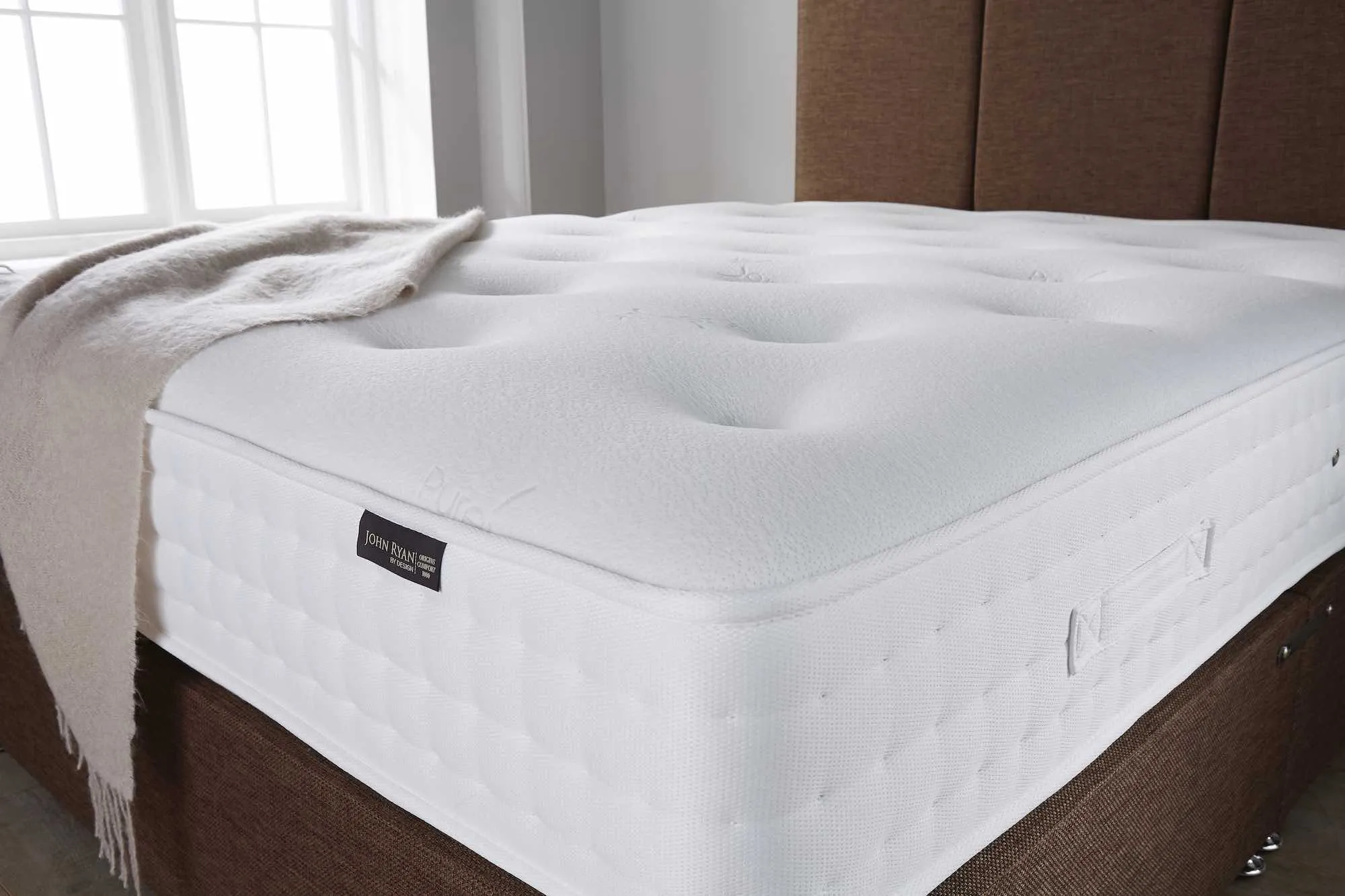
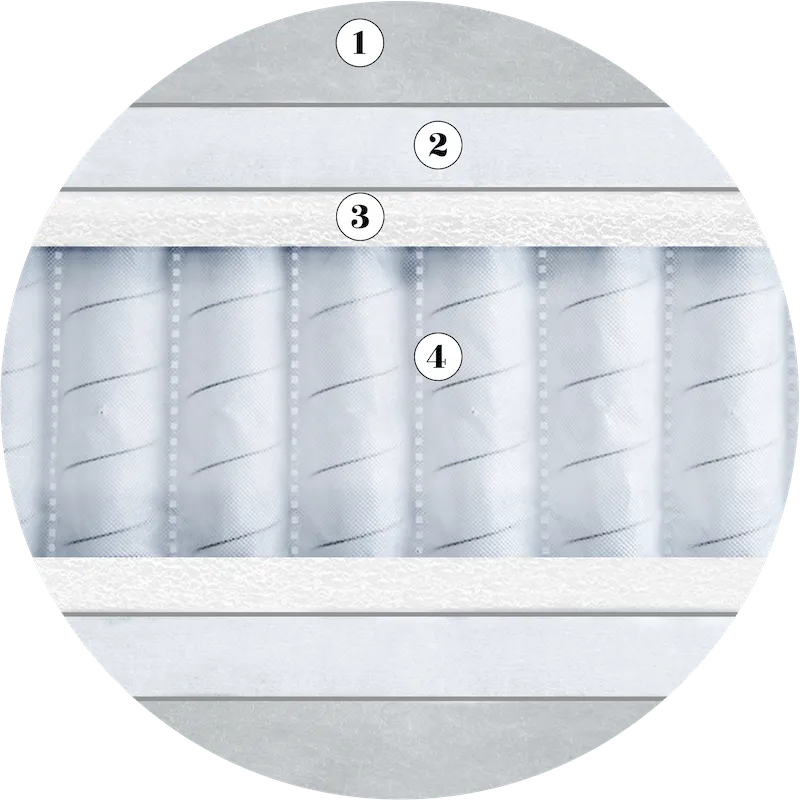
- 750GSM Very Soft Polyester
- 500GSM Polyester Pad
- One inch foam insulator layer
- 1000 Spun Bond Pocket Springs (1.4 gauge)
- Total 1250GSM
- Depth 30-33cm
- Two sided mattress
Origins Reflex Hypoallergenic Mattress
The second model for allergy suffers is our Origins Reflex Model. Firmer than the Origins Comfort it provides a firmer feel in the top layers. It features 1020gsm of Synthetic man-made hypoallergenic fillings and is 2 sided.
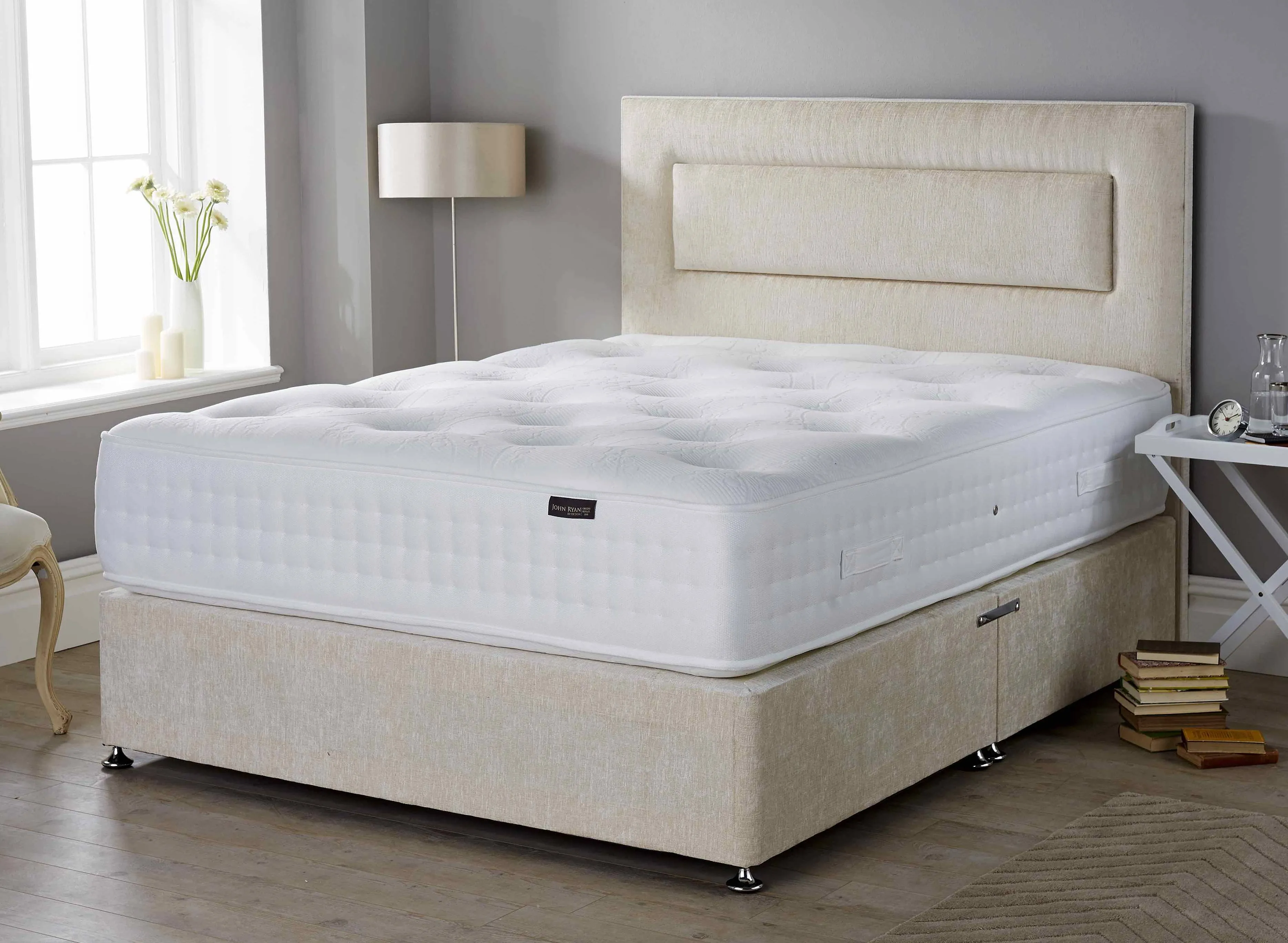
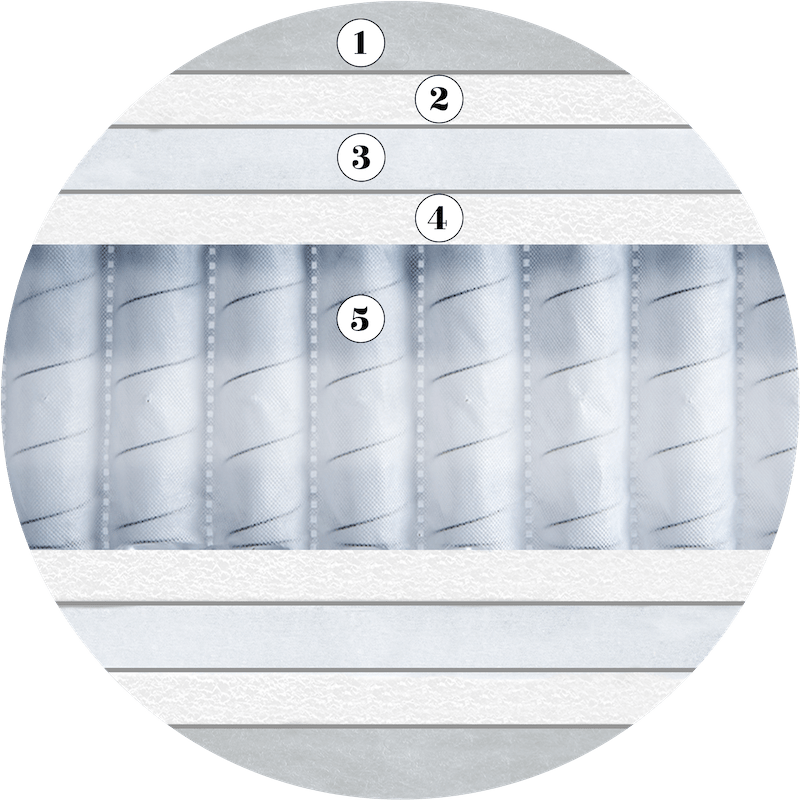
- 750GSM Very Soft Polyester
- One inch foam insulator layer
- 270GSM Polyester Pad
- 1000 Spun Bond Pocket Springs (1.4 Medium or 16. Firm gauge)
- Total 1250GSM
- Depth 30-33cm
- Two-sided mattress
Keeping your mattress & bedroom clean from allergies
One of the main tips for reducing bedroom allergies is mattress hygiene and maintenance. Dust mites can often be a cause of allergies and so washing bedsheets on a hot wash weekly can help reduce this being a potential allergen. Rotating and turning two-sided mattresses alongside vacuuming under and around the bed are examples of allergy reduction. Ventilating your room each day by opening a window can also help keep your bedroom fresh and reduce allergens (care needs to be taken if you suffer from Hayfever). If you can’t open a window then leaving your bedroom door open for air to circulate and pulling back the covers is the best way to increase sleep hygiene.
- Wash sheets on a 60 degree wash weekly
- Pull back and air covers each morning
- Ventilate your bedroom
- Turn & rotate your mattress (if possible) monthly
- Vacuum and wet dust your bedroom regularly.
Hypoallergenic Bedding & Pillows
Hypoallergenic bedding can greatly increase the quality of your sleep, helping to reduce congestion, sneezing and itching. Cotton is a fantastic natural fibre that is also hypoallergenic and can be washed at high temperatures to kill off any bacteria. Synthetic bedding is also good in reducing allergies but can be less breathable so may trap heat. Common sense dictates that the cleaner your bedding and bedroom then the lower the chances of allergic reactions will be. Whilst foams are hypoallergenic they do trap heat which can lead to night sweats which then negates their benefit in making you uncomfortable and increasing nighttime perspiration.
Summary
Allergies can be a real problem but with careful mattress material choices, you can help reduce if not eliminate any potential allergens from your bedroom. Making for a much nicer and restful nights sleep. By choosing hypoallergenic materials such as Polyester, Foam or Cotton you can help reduce your potential allergic reactions when sleeping. As always you need to make sure that any new mattress you’re considering choosing shows you the exact contents. If not you may unknowingly be introducing materials you are allergic to into the bedroom.
If you need more help why not give our friendly team a call on 0161 437 4419.

Dreaming of the perfect nights sleep?
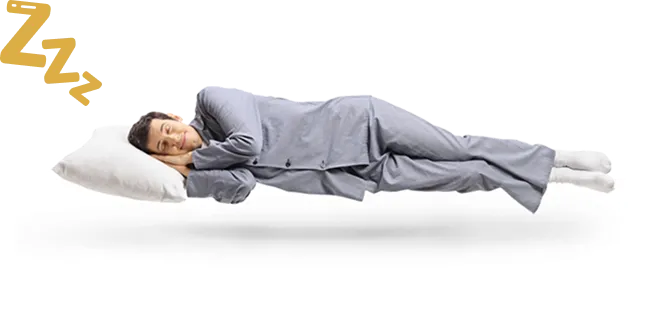
Ask us a question
There are over 6000 questions and answers submitted by you on all questions about mattresses and bed problems. Enter a keyword such as Vi Spring, John Lewis beds, bad back or Memory Foam and see if your question has already been answered.
If you can’t find an answer in knowledge hub, ask a new question. We aim to respond to all questions within one working day.
Newsletter
Enter your email to join our newsletter. We’ll send you occasional news and mattress expertise.
